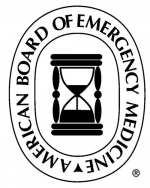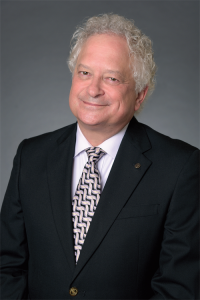 The American Medical Association (AMA) met in June in Chicago at the AMA House of Delegates Meeting to discuss a number of resolutions affecting physicians, and certainly one of the most interesting was Resolution 309: Continuing Medical Education Pathway for Recertification. The resolution, which passed, directs the AMA to “call for the immediate end of any mandatory, recertifying examination by the American Board of Medical Specialties (ABMS) or other certifying organizations as part of the recertification process” as part of its maintenance of certification (MOC) process.
The American Medical Association (AMA) met in June in Chicago at the AMA House of Delegates Meeting to discuss a number of resolutions affecting physicians, and certainly one of the most interesting was Resolution 309: Continuing Medical Education Pathway for Recertification. The resolution, which passed, directs the AMA to “call for the immediate end of any mandatory, recertifying examination by the American Board of Medical Specialties (ABMS) or other certifying organizations as part of the recertification process” as part of its maintenance of certification (MOC) process.
Explore This Issue
ACEP Now: Vol 35 – No 09 – September 2016What this resolution will mean for physicians and other medical associations is yet to be seen, however. ACEP leadership recently spoke with Barry N. Heller, MD, immediate past president of the American Board of Emergency Medicine (ABEM), to get a clearer view. An edited transcript of our conversation follows.

Barry N. Heller, MD, is immediate past president of the American Board of Emergency Medicine, and has been a member of its Board of Directors since 2008.
ACEP: In light of the recently adopted AMA House of Delegates resolution calling for abolishing “high stakes” examinations, what changes do you see taking place with the MOC process?
BH: The short answer is that Resolution 309 will have very little impact on the current path of MOC activities. The ABMS, other specialties, and ABEM have been actively exploring innovations in physician learning and assessment since the beginning of MOC and will continue to do so.
Interestingly, groups within the AMA that were well-informed about MOC, including the Emergency Medicine Section, did not support the elimination of recertification examinations, and many emergency physicians spoke in opposition to the resolution.
Resolution 309 will have very little impact on emergency medicine. As you know, ABEM is constantly reviewing its MOC Program. We’re no longer requiring diplomates to report participation in patient satisfaction or patient experience of care surveys. We’re working with ACEP to provide automatic credit for Improvement in Medical Practice (Part IV) for physicians participating in the Clinical Emergency Data Registry [CEDR]. Finally, in 2017, we’ll be incorporating correct answers and explanations to LLSA [Lifelong Learning and Self-Assessment] questions as a part of test feedback. Nearly all of these changes are the direct result of physician suggestions.
The attrition rate of currently certified emergency physicians is only about 1.5 percent per year, and there has been a net annual increase of about 1,200 new ABEM diplomates. I tell you this because despite numerous anecdotal assertions, there’s no evidence that the ABEM MOC Program has had a negative effect on the workforce.
ACEP: How long do you believe it would be before changes to MOC would take effect?
BH: It would be difficult to estimate timelines until and unless specific changes are approved. Before ABEM changes from the current ConCert Examination format, we need to carefully study the alternatives. In short, we need to be certain that innovation doesn’t outpace rigor.
The ABEM MOC Program already has a significant learning dimension. For the LLSA, 92 percent of physicians report that the activity leads to changes in practice to at least some degree. In a report by Marco et al, more than 90 percent of test takers reported a learning benefit to preparing for and taking the exam.1
Before ABEM considers any transition from the ConCert, which is a highly successful, psychometrically proven physician-assessment format, we need to study the alternatives. There are potential upsides to these new processes, but there are aspects that could be better understood.
ACEP: The American Board of Anesthesiology (ABA) has been allowed to pilot an alternative to a continuous certification exam every 10 years. Do you think this is a viable alternative? Why or why not?
BH: It’s too early to definitively determine if the ABA approach is the best course for emergency medicine. ABEM is carefully monitoring the ABA program as well as a similar one developed by ABMS called CertLink. Both formats use frequently transmitted questions for physicians to answer that can be delivered via a mobile platform. Before ABEM would adopt CertLink, we would need to be sure that the learning and assessment advantage is better than the current combination of LLSA tests and the ConCert Exam. ConCert is carefully designed to assess complex cognitive skills, such as diagnostic processing, rather than fact recall. Cognitive psychology research demonstrates that tests designed like this have a huge learning dimension. Though physicians don’t prefer learning through testing or appreciate the considerable learning impact, learning is a proven and powerful aspect of the ConCert Exam.
What makes certification different from simple CME [continuing medical education] testing is that it includes a summative assessment against an external objective national standard. In ABEM’s case, that assessment is accomplished via an examination. In the absence of a physician demonstrating cognitive competencies against a national standard, ABEM would become little more than a CME clearinghouse, and becoming certified, little more than a glorified CME certificate.
ACEP: Is ABEM considering changes to its MOC process, including moving away from the ConCert exam every 10 years? If so, when would such changes occur?
BH: ABEM is open to exploring any improvement to the MOC Program. When the ABA platform was first discussed, physicians would receive a question every week. As the program has been implemented, many physicians are batching the questions and responding every three months. We don’t know if, over time, physicians would like even greater spacing for items, such as once per year, or if they’ll experience participation fatigue. In addition, these pilot programs must determine how to reach a summative assessment of a physician’s performance. The bottom line is that this is a complex issue that requires a more thorough review.
ACEP: Do you think ABMS member boards have a conflict of interest when considering changes that may also reduce their revenue?
BH: Any nonprofit organization must consider the value equation for its stakeholder groups. Speaking for ABEM, revenue has never been a top priority in designing our certification processes, and it seems that we’ve always had success in balancing that value proposition. It’s also unclear at this stage whether changes will positively or negatively affect revenue. If it’s best for our diplomates and our patients, we’ll find a way to make it work regardless of the financial effect.
ABEM is committed to making certain that ABEM certification is valued by the patient, hospital systems, payers, and physicians. ABEM diplomates can be proud that they have accomplished a milestone that required a significant professional commitment. ABEM is pleased to support a specialty whose physicians have always embraced the notion that a one-time credential at the beginning of their clinical practices is an insufficient testament to their competencies throughout their medical careers.
Reference
- Marco CA, Wahl RP, Counselman FL, et al. The American Board of Emergency Medicine ConCert Examination: emergency physicians‘ perceptions of learning and career benefits [published online ahead of print March 28, 2016]. Acad Emerg Med. doi:10.1111/acem.12971.
Pages: 1 2 3 | Multi-Page





No Responses to “AMA Opposes Mandatory American Board of Medical Specialties’ Recertification Exams”